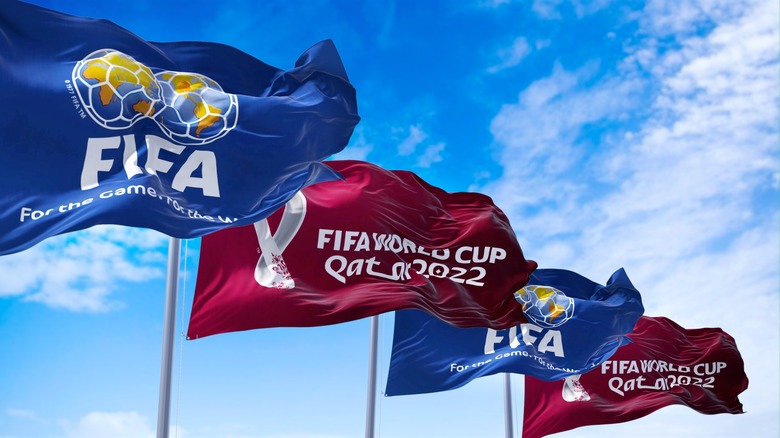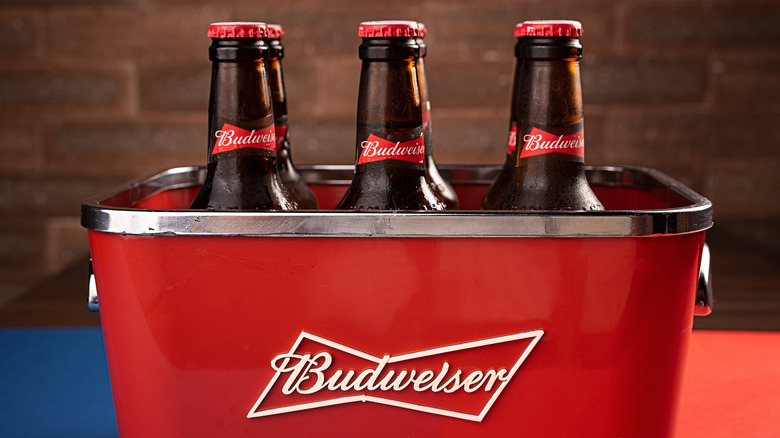The 2022 World Cup Is In Danger Of Not Having Beer
After 12 years of planning, a recent development threatens the possibility of a 2022 World Cup without beer. Hosting the upcoming games is Qatar, an Islamic state ruled by an absolute hereditary monarchy. The state was chosen as this year's venue in 2010, an announcement that has been embroiled in controversy ever since, reports the BBC. Critics of the decision cite allegations of bribery, human rights violations, and environmental ramifications, among others, as reasons why Qatar is an unfit host for a highly anticipated global event. Much to the concern of FIFA, these factors are triggering an intensifying call for a boycott of the competition, per Euronews.
A recent comment by former FIFA president Sepp Blatter has only added insult to injury: "Qatar is a mistake," he told Swiss newspaper Tages Anzeiger (via CNN). "It is too small of a country. Football and the World Cup are too big for it." On the heels of his remarks is news that the World Cup in Qatar might not be able to accommodate alcohol sales in the stadiums — confirming concerns that a typically boozy event would be very difficult to navigate in a country with rigid alcohol laws. Budweiser, a historically prominent FIFA sponsor, stands to be the most affected by the news.
One of FIFA's most important sponsors is booted from stadiums
Qatari authorities are reportedly concerned that the local population, accustomed to restricted alcohol access, may be uncomfortable with the prevalence of alcohol at the World Cup, according to The New York Times. Citing fears that the sale of booze in the stadiums could evolve into "a potential security problem," Qatari officials have just demanded that Budweiser move its beer tents to "less obtrusive locations" away from the stadiums and other sponsored stalls.
A prior agreement between Qatari officials and FIFA, as reported by the Associated Press last September, would allow the sale of Budweiser beer in designated stadium areas before and after the matches. In more prominent stadium areas, alcohol-free beer would be made available for purchase. The country has now made a U-turn on this deal a week before the contest kicks off on November 20.
This sudden change of heart stokes fears that Qatar might ban alcohol at the World Cup altogether. Whether or not that happens, the new rules mean that Budweiser will not receive the exposure it pays millions for every World Cup, which could lead to the loss of a valuable sponsor for FIFA — and, for the avid football fan, a dry game-viewing experience.

